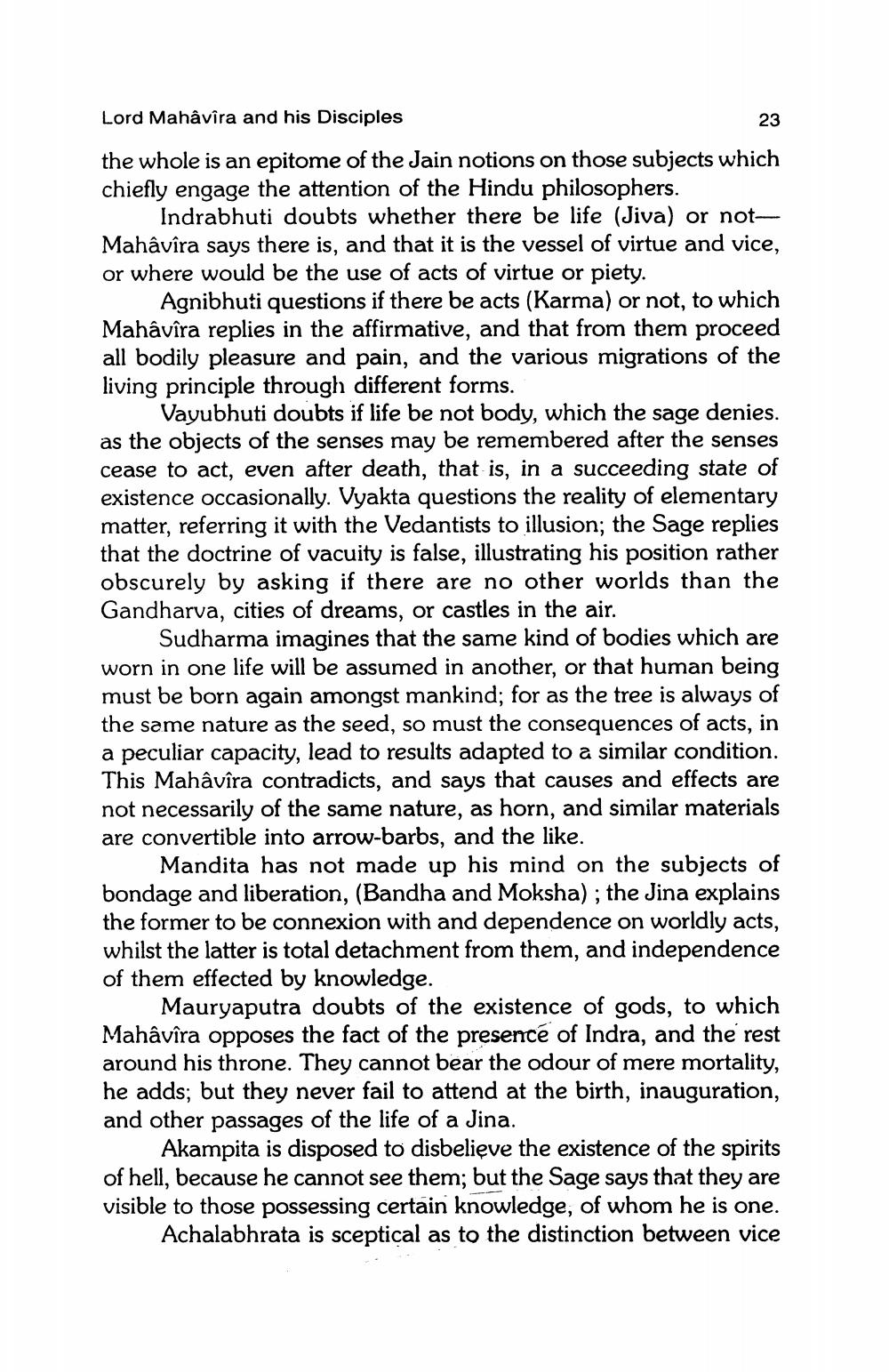________________
Lord Mahâvîra and his Disciples
the whole is an epitome of the Jain notions on those subjects which chiefly engage the attention of the Hindu philosophers.
Indrabhuti doubts whether there be life (Jiva) or notMahâvîra says there is, and that it is the vessel of virtue and vice, or where would be the use of acts of virtue or piety.
Agnibhuti questions if there be acts (Karma) or not, to which Mahâvîra replies in the affirmative, and that from them proceed all bodily pleasure and pain, and the various migrations of the living principle through different forms.
Vayubhuti doubts if life be not body, which the sage denies. as the objects of the senses may be remembered after the senses cease to act, even after death, that is, in a succeeding state of existence occasionally. Vyakta questions the reality of elementary matter, referring it with the Vedantists to illusion; the Sage replies that the doctrine of vacuity is false, illustrating his position rather obscurely by asking if there are no other worlds than the Gandharva, cities of dreams, or castles in the air.
23
Sudharma imagines that the same kind of bodies which are worn in one life will be assumed in another, or that human being must be born again amongst mankind; for as the tree is always of the same nature as the seed, so must the consequences of acts, in a peculiar capacity, lead to results adapted to a similar condition. This Mahâvîra contradicts, and says that causes and effects are not necessarily of the same nature, as horn, and similar materials are convertible into arrow-barbs, and the like.
Mandita has not made up his mind on the subjects of bondage and liberation, (Bandha and Moksha); the Jina explains the former to be connexion with and dependence on worldly acts, whilst the latter is total detachment from them, and independence of them effected by knowledge.
Mauryaputra doubts of the existence of gods, to which Mahâvîra opposes the fact of the presence of Indra, and the rest around his throne. They cannot bear the odour of mere mortality, he adds; but they never fail to attend at the birth, inauguration, and other passages of the life of a Jina.
Akampita is disposed to disbelieve the existence of the spirits of hell, because he cannot see them; but the Sage says that they are visible to those possessing certain knowledge, of whom he is one. Achalabhrata is sceptical as to the distinction between vice




